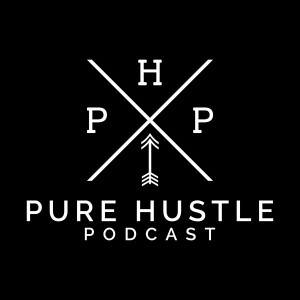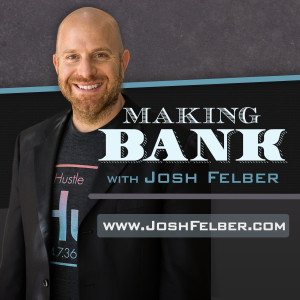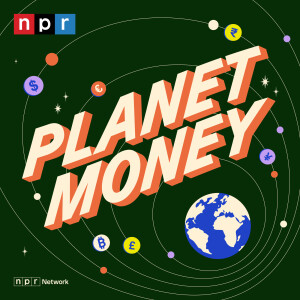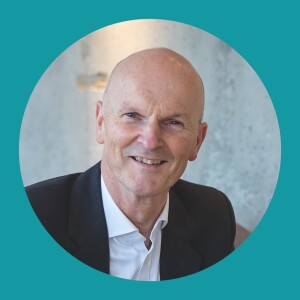If you aspire to being part of the impending revolution in public services, don’t miss out on this podcast.
Professor Donna Hall CBE is Chair of Bolton NHS Foundation Trust, and also Integrated Care System Advisor to NHS England, Chair of the New Local Government Network (NLGN) think tank, Professor of Politics at Manchester University, and former Wigan Chief Executive. You can find her on Twitter @profdonnahall.
Donna studied Politics and English at the University of Leeds, following which she started her career in Human Resources with Leeds City Council. Since then she has worked in various roles in local government (and briefly in the private, and community and voluntary sectors). Most recently she spent 8 years as Chief Executive of Wigan Council, where the Council developed ‘The Wigan Deal.’ Prior to that she was at Chorley, where ‘The Chorley Smile’ was a forerunner of The Deal.
In 2009 Donna was awarded a CBE for innovation in public services in connection with the DWP ‘Tell Us Once’ programme, which allows a person to report a death to all government departments with a single phone call, reducing stress for members of the public at a difficult time.
The Wigan Deal started in earnest in 2011, with Wigan Council, the ninth largest metropolitan council in the UK, having to make £160m is savings over an 8-year period. The Institute of Fiscal Studies calculated that proportionately they were the third worst affected Council in the UK in terms of the impact of austerity. Lord Peter Smith, the members of the Council, and the officers realised that a conventional cost cutting approach was not viable.
The Council brokered a new deal with its citizens, in which instead of trying to ‘fix’ people, the Council sought to nurture their strengths. The Council invested some £13m in grass roots community projects. One of the outcomes was that healthy life expectancy has been improved by seven years in the most deprived parts of the borough, and satisfaction with the Council increased by 50% across the borough.
Organisations such as the Kings Fund that have evaluated its success have credited “constancy of purpose” as playing a major role - see ‘The Kings Fund (2019), A Citizen-Led Approach to Health and Care: Lessons from the Wigan Deal’, available at https://www.kingsfund.org.uk/sites/default/files/2019-06/A_citizen-led_approach_to_health_and_care_lessons_from_the_Wigan_Deal_summary.pdf.
Last month Donna presented at the NHS England “Leading Change with People and Communities Conference”, which was a sell out in both Manchester and London. She believes that we are on the cusp of a public services revolution in the UK. It’s not just The Wigan Deal and similar initiatives, but the coronavirus crisis has illustrated how communities can pull together and how public servants can work with those communities differently.
In her own time she chairs The New Local Government Network think tank, which is working with 70 of the most progressive councils and will shortly be working with their first NHS Trust to drive through whole-place, whole-system transformation, and deliver ‘The Community Paradigm’: the 1940s saw the emergence of the state paradigm, which was very transactional and top down; in the 1980s the market paradigm sought to address the deficits in the state paradigm; the new “community paradigm… shifts power back to communities.”
The Councils engaging with the community paradigm are all political colours. The original thinking came from economist Elinor Ostrom, Nobel Prize winner in 2009. Whilst Donna says that she can’t understand why everyone isn’t doing it, she concedes that it takes a different type of political and managerial leadership. It involves giving staff on the front line and residents the permission to innovate. And staff need the skills and courage to engage in human to human conversations and “not hide behind clipboards”: their role becomes supporting residents to live their best possible lives.
One of the pillars of the Wigan Deal was “The Be Wigan Experience”, a low-cost high impact half-day programme for staff developed by the Council’s HR team. It was eventually deployed to all public servants working in Wigan, including police officers, GPs, hospital staff, housing associations, and the DWP. It aimed to changing the mindset of public servants from rescuer to partner, and was based on the values of being positive, accountable, courageous, and kind.
Some of the national inspection frameworks don’t recognise whole system working and militate against the implementation of The Deal and similar initiatives.
Donna mentions the article in Health Service Journal (2020) about applying Elinor Ostrom’s thinking to STPs (Sustainability and Transformation Partnerships, a new form of collaboration between the NHS and local authorities) and ICPs (Integrated Care Partnerships), available at https://www.hsj.co.uk/service-design/what-have-nobel-prize-winners-ever-done-for-us/7027119.article
The Bolton NHS Foundation Trust job is Donna’s first chair role and she is really enjoying it. She loves her home town. She sees a high degree of commonality between the NHS and local authorities – both are delivering “fractured public services that don’t work together around the person and the family.” The culture in the NHS is different on account of the “command and control from NHS England.” Local government has more freedom and flexibility. “But we’re all public servants with the mindset that we’re here to help people.” Her sister is a midwife at the hospital.
Despite needing capital investment in its facilities, Bolton aspires to be a smaller hospital, putting more resources into the local community. Their new strategy “For a Better Bolton” is about keeping people well and out of hospital, and also about the hospital’s role as the largest employer in Bolton.
In her role as Integrated Care System Advisor, Donna has facilitated away day sessions for NHS England, helping them to think about the community paradigm and to broaden their thinking beyond the NHS. She thinks there is a lot of learning from The Wigan Deal about delayering and empowering front-line staff that could be applied in the NHS.
Apart from the King’s Fund report, Donna would also recommend ‘Radical Help’ by Hilary Cottam, who supported the Council in Wigan. She identified that the Council was spending 80% of its time on assessing, referring, and processing families through a fractured system. They were only spending 20% of their time on face to face relationship building and understanding the strengths of the assets within families.
Donna’s personal leadership philosophy starts with the notion that humility is an underrated quality: she believes it is important for a leader to acknowledge that they are not perfect and don’t have all the answers. She has always tried to create a relaxed but productive culture that focuses on people. Someone once told her that she has a very good bullshit detectors, being able to pick up on individuals whose behaviours don’t align with what they say. One of her favourite questions is “So what?” by which she means what difference will this strategy make to people and the way that they live their lives? She says “the human element of what we are doing is really important.”
Donna enjoys talent spotting, especially finding new entrants into the system who are starting out with a fresh pair of eyes. She says “we’ve got a very limited window where we can seize that opportunity to help them help us shape a new transformed organisational system.”
Her favourite work related achievements comprise The Wigan Deal, The Community Paradigm (published by the NLGN in 2019 and written by Dr Adam Lent and Jessica Studdert, available at http://www.nlgn.org.uk/public/wp-content/uploads/The-Community-Paradigm_FINAL.pdf), and Tell Us Once.
Her biggest mistake concerns “Don’t Blame the Council” (ITV 2015), where she trusted the judgement of two of her staff in relation to a television programme subsequently watched by 14 million people. In the event it proved to be “awful.” She says “when you trust people occasionally people let you down, but in my experience they are very few and far between… most people if you trust them you get so much more back in return.”
She cites her dad as a major inspiration on her leadership journey. She was adopted. Her dad was a strong trade unionist. When she asked him as a little girl “Daddy, will I ever be a princess?”, he replied “No and you should think yourself lucky – they’re a leech on society!” He gave her a belief in the power of community.
Donna’s self-care regime comprises time with her dogs, family, and friends. Nature and countryside is how she reconnects with her soul.
Besides Radical Help and the King’s Fund Work on The Wigan Deal, Donna would commend ‘Sapiens’ by Yuval Noah Harari to aspiring leaders. Among other things, Harari highlights the importance of our belief system. Donna says we need a narrative that everyone can get. People overcomplicate strategy. We need to keep it simple and compelling, and stick with it.
Her advice to her 20-year old self would be have more confidence and self-belief, worry less about what people think of you, and worry less about having a strong northern accent. She would give herself a big hug.
More Episodes
Dave Hembrough, positively affecting lives in Sheffield City Region and beyond
 2021-02-04
2021-02-04
Dame Jackie Daniel, equipping Newcastle Hospitals for success
 2021-01-21
2021-01-21
Stephen Trzeciak, Compassionomics: the evidence base for compassion
 2020-12-03
2020-12-03
Mark Harrison, changing the things I cannot accept
 2020-10-22
2020-10-22
Nadine Smith, healing the rift between Government and the citizen
 2020-07-23
2020-07-23
Rayek Rizek, modelling peaceful coexistence in Israel-Palestine
 2020-06-11
2020-06-11
Michael Arterberry, the parable of the farmer and the donkey
 2020-05-28
2020-05-28
Sunny Dhadley, addiction to leadership
 2020-05-14
2020-05-14
Laura Berland and Evan Harrel, The Center for Compassionate Leadership
 2020-04-30
2020-04-30
Dame Julia Unwin, reframing the discussion on poverty in the UK
 2020-04-02
2020-04-02
Mark Brown, Outward Bound lessons for a life of leadership
 2020-03-19
2020-03-19
Sarah David II, the leader as philosopher, learner and listener
 2020-03-05
2020-03-05
Dr Nate Regier, conflict without casualties
 2020-02-20
2020-02-20
Marie Cooper, “What’s the worst that can happen?”
 2020-02-06
2020-02-06
Rob Copeland, believing, belonging, behaving, and becoming at the AWRC
 2020-01-23
2020-01-23
Lara Bundock, supporting survivors of human trafficking
 2020-01-16
2020-01-16
Michael West, a compassion masterclass
 2020-01-02
2020-01-02
Tracy Allen, "What is your leadership for?"
 2019-12-19
2019-12-19
Lisa Leighton, every day is a learning day
 2019-11-14
2019-11-14
Create your
podcast in
minutes
- Full-featured podcast site
- Unlimited storage and bandwidth
- Comprehensive podcast stats
- Distribute to Apple Podcasts, Spotify, and more
- Make money with your podcast
It is Free
You may also like

The Business Of

The Everyday Millionaire


Pure Hustle Podcast


Making Bank


The Ramsey Show


Planet Money


- Privacy Policy
- Cookie Policy
- Terms of Use
- Consent Preferences
- Copyright © 2015-2024 Podbean.com



 iOS
iOS Android
Android